At MusicProductionGlossary.Com, our aim is to provide comprehensive information in the field of music production, audio engineering, live sound engineering and continuously improve our content to establish ourselves as a trusted source of knowledge, particularly for those who are new to music production.
There is an abundance of online resources available today for learning, even more so than a few years ago, but music production courses or schools still hold their value. While it’s not obligatory to have a degree or attend a music production school in order to enter in this world, it can greatly facilitate your journey.
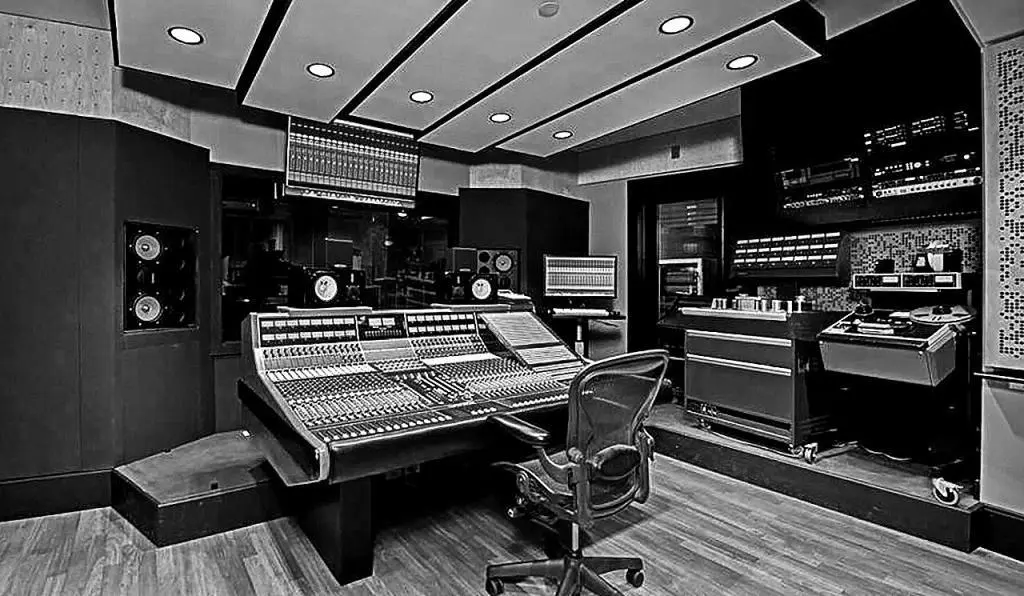
Music Production Schools typically offer state-of-the-art facilities, providing access to software and hardware that may not be readily available otherwise, especially for beginners. This can lay a solid foundation for your career as a music producer or sound engineer. Additionally, you can build connections, network, and gain access to communities and influential individuals in the field who may open a lot of oportunities for you in the future.
That’s why we created a complete list of top music production schools. We will link to their official site so you can easily find the latest information.
Please contact us to add other schools for music production to the list below.
Music Production Schools – The Curated List
Berklee College of Music – Boston, MA, USA
- School Site: Berklee.Edu
- School Location: Boston, MA 02215, United States
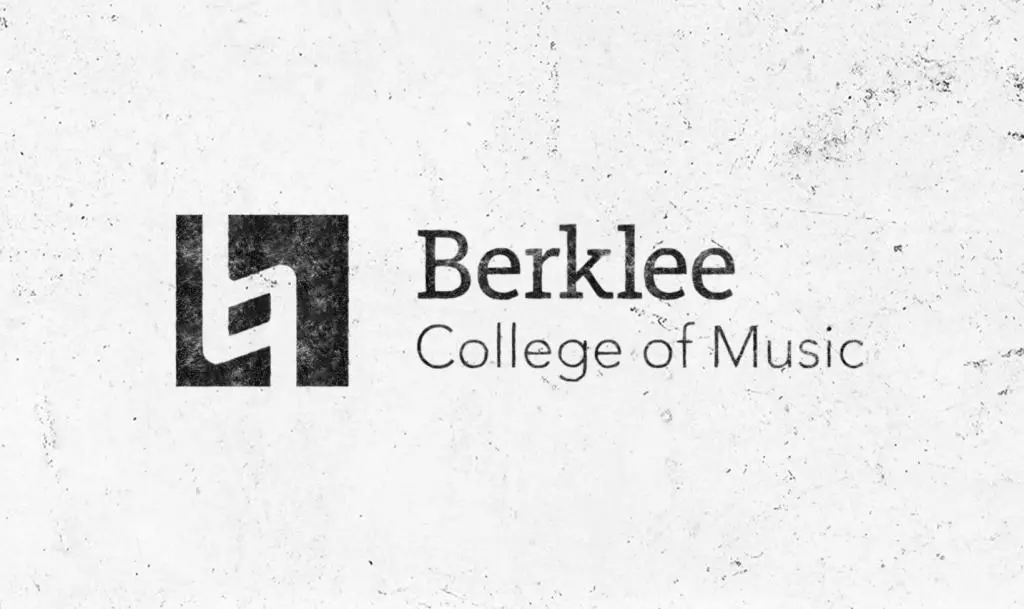
Berklee College of Music, located in Boston, Massachusetts, is a distinguished private music college known for offering a cutting-edge curriculum that has shaped the contemporary music landscape.
As the largest independent college of contemporary music in the world, Berklee has gained a reputation for its exceptional instruction in jazz, modern American music, and a wide range of other styles such as rock, hip hop, reggae, salsa, heavy metal, and bluegrass.
With a track record of producing highly successful alumni who have won a staggering 310 Grammy Awards, the highest number among all music colleges and colleges for music production, as well as numerous other accolades including Latin Grammy Awards, Emmy Awards, Tony Awards, Academy Awards, and Saturn Awards, Berklee College of Music has established itself as a global leader in music education and it is known as being one of the top music production school.
Berklee’s curriculum is designed to provide students with a strong foundation in music theory, performance, and technology, while also allowing them to specialize in their chosen musical genres and career paths. The college offers majors in areas such as performance, composition, music production and audio engineering, music business, songwriting, film scoring, and more. Students also have the opportunity to collaborate with fellow musicians from around the world, as Berklee boasts a diverse student body representing over 100 countries.
Berklee’s faculty comprises accomplished musicians and industry professionals who are committed to providing students with a world-class education. They bring their real-world experience, industry connections, and passion for teaching into the classroom, ensuring that students receive the most up-to-date and relevant instruction. The college also invites guest artists and industry experts to conduct masterclasses, workshops, and clinics, providing students with invaluable insights and networking opportunities.
One of the hallmarks of Berklee’s education is its focus on performance and experiential learning. The college boasts state-of-the-art performance venues, recording studios, and technology labs where students can hone their skills and gain hands-on experience.
Berklee’s Performance Division offers opportunities for students to perform in ensembles, bands, and recitals, allowing them to showcase their talent and develop their stage presence. The college also hosts regular concerts, showcases, and festivals that feature student performances, providing a platform for students to gain exposure and build their professional networks.
In addition to its strong emphasis on performance, Berklee also prepares students for the business side of the music industry. The Music Business / Management Division offers courses on topics such as music marketing, artist management, music publishing, and entrepreneurship, equipping students with the knowledge and skills to navigate the ever-changing landscape of the music business. Berklee also provides career development services, including internships, job placement assistance, and networking opportunities with industry professionals, to help students launch successful careers in music.
Berklee College of Music has also expanded its global reach in recent years. The college has established campuses in Valencia, Spain, and Abu Dhabi, United Arab Emirates, offering unique study abroad opportunities for students. These campuses provide a global perspective on music education, allowing students to collaborate with musicians from diverse cultural backgrounds and gain a deeper understanding of global music markets.
In addition to its campus locations, Berklee has also developed partnerships with renowned music institutions and organizations worldwide. These partnerships provide students with opportunities for exchange programs, joint performances, and collaborative projects, further enriching their educational experience and expanding their professional networks.
Berklee’s commitment to innovation and excellence has earned it numerous accolades and recognition. The college has been consistently ranked as one of the top music schools and also music production schools in the world by prestigious publications and organizations, and its alumni have achieved success in various facets of the music industry, including performing, composing, producing, and entrepreneurship.
Looking ahead, Berklee College of Music continues to evolve and adapt to the changing landscape of the music industry. The college remains at the forefront of music education, constantly updating its curriculum, facilities, and resources to ensure that students receive the best possible education and are well-prepared for the challenges and opportunities of the music industry in the 21st century.
Berklee College of Music has a strong alumni network that includes notable musicians and industry professionals, such as John Mayer, Quincy Jones, Esperanza Spalding, Al Di Meola, and many others, who have made significant contributions to the music industry.
Learning Music Production at Berklee College of Music
Berklee College of Music offers several programs as a music production school, catering to students at different levels of experience and expertise. From many points of view it is one of the best music production schools in the world.
Here are some of the main programs for music production at Berklee:
- Bachelor of Music in Music Production and Engineering (MP&E): This is a comprehensive undergraduate program that provides in-depth training in music production, audio engineering, and recording techniques. The curriculum covers topics such as studio recording, mixing, mastering, sound design, music technology, and business principles. Students learn to use industry-standard software and equipment, gain hands-on experience in recording studios, and collaborate with other musicians and producers to create original music projects.
- Master of Music in Music Production, Technology, and Innovation: This is a graduate program that focuses on advanced music production techniques, technology, and innovation in the music industry. The curriculum covers topics such as advanced audio production, music technology, interactive media, immersive audio, and entrepreneurship. Students have the opportunity to work on cutting-edge projects, collaborate with faculty and industry professionals, and develop their own innovative music production projects.
- Online Music Production Courses: Berklee also offers online courses in music production, which are designed for students who prefer a flexible learning format or want to enhance their skills in a specific area of music production. These courses cover topics such as music production techniques, recording, mixing, mastering, and music technology. Students can access course materials, participate in discussions, and receive feedback from instructors online.
- Summer Programs: Berklee offers intensive summer programs in music production, such as the Music Production Summer Program, where students can immerse themselves in an intensive learning experience focused on music production, recording, and engineering. These programs provide hands-on training, access to state-of-the-art facilities, and opportunities to collaborate with fellow students and faculty.
- Collaborative Programs: Berklee College of Music also offers collaborative programs in music production, such as the Music Production and Recording Technology program with Boston Conservatory at Berklee, where students can combine their music production skills with training in other areas such as performance, composition, and music education.
Note: As with all music production schools, music production colleges covered in this curated list, it is important to visit Berklee College of Music’s official website or contact the admissions office for the most up-to-date and comprehensive information about their music production programs, including admission requirements, tuition fees, and curriculum details.
SAE Institute – Multiple Locations
- School Link: SAE.Edu
- School Location: Multiple Locations
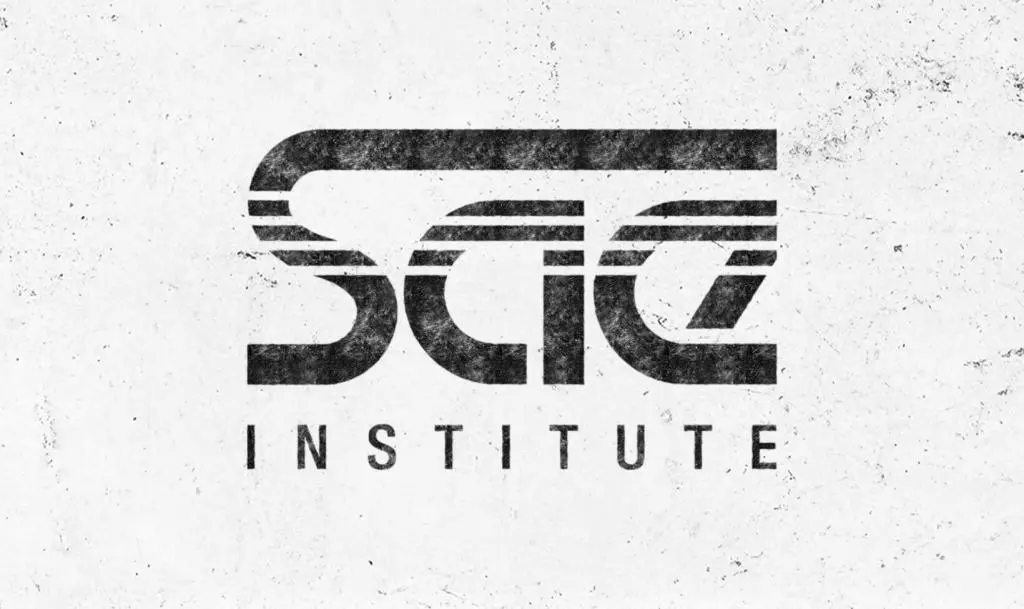
With its innovative approach to education and industry-focused programs, SAE Institute has become a pillar in shaping the future of media education.
SAE Institute traces its roots back to its founding in Sydney, Australia in 1976 by Tom Misner, a music enthusiast and entrepreneur. It started as the School of Audio Engineering, offering courses in audio engineering and music production. Over the years, SAE Institute has expanded its scope and reach, and now operates campuses in major cities across the globe, including the United Kingdom, Australia, Europe, Asia, and the United States. With its extensive global presence, SAE Institute has established itself as a leading provider of creative media education on an international scale.
Innovative Programs and Industry-Focused Education
At the heart of SAE Institute’s success is its innovative approach to education. The institute offers a wide range of degree programs that are designed to provide students with hands-on, practical training and real-world industry experience. SAE Institute’s programs are tailored to meet the demands of the ever-changing creative media industry, with a focus on developing the skills and knowledge that are relevant in today’s job market.
SAE Institute offers programs in various subject areas, including Audio, Content Creation & Online Marketing, Film, Game Art Animation, Games Programming, Music Business, Visual Effects, and Web Development.
These programs are delivered by experienced industry professionals who bring their real-world expertise into the classroom, ensuring that students receive a relevant and industry-focused education. Students at SAE Institute have access to state-of-the-art facilities, cutting-edge equipment, and industry-standard software, providing them with the tools and resources they need to unleash their creativity and develop their skills to the fullest.
Partnerships with Prestigious Institutions
SAE Institute has established partnerships with prestigious institutions to ensure the quality and recognition of its programs. These partnerships provide students with the opportunity to earn degrees that are validated by renowned universities, further enhancing their educational credentials. For example, SAE Institute is a validated partner of Middlesex University in London, and students who successfully complete their studies at SAE Institute receive a Middlesex award. This validation ensures that students receive a rigorous and reputable education that is recognized globally, opening doors to more opportunities in their careers.
SAE Institute also partners with other institutions in different countries, such as the Institut für Computermusik und Elektronische Medien of Folkwang University of the Arts in Germany, to offer specialized programs. These partnerships bring together the expertise of multiple institutions and create a collaborative and enriching learning environment for students.
Notable Alumni Making an Impact
SAE Institute takes pride in its impressive list of notable alumni who have gone on to make their mark in the creative media industry. These alumni are a testament to the quality of education and training provided by SAE Institute, and they continue to shape the future of the industry. Some of the notable alumni include award-winning music producers, filmmakers, game developers, visual effects artists, and more.
For example, Mark Paterson, an alumnus of SAE Institute, won an Oscar and a BAFTA for his work on the 2012 film Les Misérables. Rob Swire, another notable alumnus, is a successful music producer and DJ, known for his work in electronic music and as a member of the band Pendulum. Other notable alumni include Andy Bradfield, a Grammy-winning music producer and engineer who has worked with artists such as Elton John and Rufus Wainwright, and Carlos Alazraqui, a prominent voice actor known for his work in animated films and TV shows.
SAE Institute’s alumni network spans across various creative media industries, showcasing the diverse and successful careers that its graduates have achieved. The institute takes pride in nurturing talent, providing industry-relevant education, and empowering its alumni to make a significant impact in the creative media world.
Learning Music Production at SAE Institute
SAE Institute offers a range of comprehensive programs and courses for music production, designed to provide students with the skills, knowledge, and hands-on experience needed to succeed in the music industry. These programs are tailored to meet the needs of aspiring music producers, audio engineers, sound designers, and artists, and cover various aspects of music production, from recording and mixing to mastering and production techniques. Some of the popular programs offered at SAE Institute as a music production school include:
- Audio Production Diploma: This program covers the fundamentals of audio production, including recording techniques, music theory, sound design, and mixing/mastering. Students learn to use industry-standard software and equipment, develop critical listening skills, and gain practical experience in recording studios and production environments.
- Bachelor of Science in Audio Production: This program is designed for students who wish to deepen their understanding of audio production and gain a comprehensive education in music production. It covers advanced topics such as audio post-production, advanced mixing/mastering techniques, music business, and project management. Students also have the opportunity to specialize in their area of interest, such as electronic music production, hip hop production, or live sound production.
- Electronic Music Production Certificate: This program focuses specifically on electronic music production, covering topics such as synthesizers, MIDI sequencing, music arrangement, and electronic music genres. Students learn to use digital audio workstations (DAWs), software synthesizers, and other tools to create original electronic music tracks.
- Sound Engineering Diploma: This program focuses on the technical aspects of audio production, including sound engineering principles, acoustics, audio electronics, and live sound production. Students gain hands-on experience with audio equipment, consoles, and software, and learn to troubleshoot and optimize audio systems for various applications.
- Short Courses and Workshops: SAE Institute also offers short courses and workshops that focus on specific aspects of music production, such as mixing and mastering, beat making, sound design, and music production with specific software or hardware tools. These courses provide focused and intensive training for students who wish to enhance their skills in a particular area of music production.
New York University Steinhardt (NYU) – New York, NY, USA
- School Site: Steinhardt.NYU.Edu
- School Location: New York, NY 10003, United States
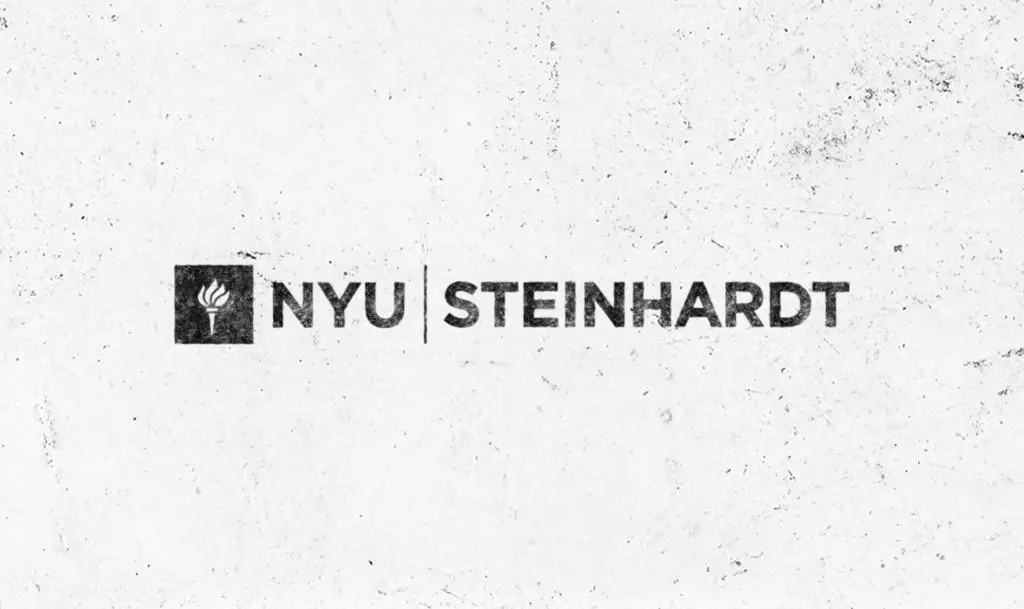
The New York University Steinhardt School of Culture, Education, and Human Development, commonly referred to as Steinhardt, is a renowned institution that has been at the forefront of education since its establishment in 1890.
As the secondary liberal arts and education school of New York University, Steinhardt has a rich history of excellence in research, teaching, and community engagement. With its diverse range of programs and commitment to innovation, Steinhardt has become one of the leading music production schools in the world.
History of Innovation
Steinhardt’s legacy of innovation can be traced back to its founding in 1890 as the School of Pedagogy, which was the first school of pedagogy to be established at an American university. From its early days, Steinhardt has been dedicated to advancing the field of education and pushing the boundaries of traditional teaching methods. The School soon added courses in psychology, counseling, art, and music, which expanded its scope and attracted a diverse range of students.
In 1910, Steinhardt made history by establishing the first university chair in experimental education in the United States. This pioneering move laid the foundation for the School’s commitment to research-driven education and innovative teaching practices that continue to this day. During the 1920s, Steinhardt experienced significant growth, with its enrollment increasing from 990 to more than 9,500 students. The Education Building on Washington Square, which opened in 1930, became the School’s iconic home and continues to serve as a hub of creativity and learning.
Wide Range of Programs
Today, Steinhardt offers a wide range of bachelor’s, master’s, advanced certificate, and doctoral programs in various disciplines, including applied psychology, art, education, health, media, and music. With its comprehensive and interdisciplinary approach, Steinhardt equips students with the knowledge, skills, and experiences they need to excel in their chosen fields and make a positive impact on society.
One of the unique aspects of Steinhardt is its commitment to creativity and innovation in education. The School emphasizes hands-on learning, experiential education, and cutting-edge research that prepares students for the dynamic and ever-evolving landscape of education, culture, and human development. Students at Steinhardt engage in practical experiences, internships, fieldwork, and research projects that enable them to apply their learning in real-world settings and make meaningful contributions to their fields.
Steinhardt’s commitment to diversity and inclusivity is also reflected in its academic programs. The School values and embraces diverse perspectives, experiences, and cultures, and strives to create an inclusive and supportive learning environment for all students. With a faculty that comprises renowned scholars and practitioners from diverse backgrounds, Steinhardt offers a rich and vibrant academic experience that prepares students to thrive in a globalized world.
Learning Music Production at New York University Steinhardt (NYU) NY
New York University Steinhardt (NYU) offers several music technology programs at the undergraduate and graduate levels. These programs provide students with the knowledge and skills necessary to work in various aspects of the music industry, including recording, production, sound design, electronic music, interactive media, and more.
Some of the music technology programs offered at NYU Steinhardt include:
- Bachelor of Music in Music Technology: This undergraduate program focuses on the technical and creative aspects of music production, recording, and sound design. Students learn about analog and digital recording technologies, MIDI, audio processing, mixing, and mastering, as well as music business and entrepreneurship. The program also offers specialized tracks in Recording and Production, Electronic Performance, Music Business and Entrepreneurship, and Audio for Games, Virtual Reality, and Augmented Reality.
- Master of Music in Music Technology: This graduate program is designed for students who want to further their knowledge and skills in music technology. It offers advanced coursework in areas such as recording and production, interactive media, sound design, game audio, and more. Students also have the opportunity to work on individual projects and collaborate with faculty and fellow students.
- Advanced Certificate in Music Technology: This post-baccalaureate program is designed for students who already have a bachelor’s degree in music or a related field and want to gain specialized knowledge in music technology. It offers courses in areas such as recording and production, electronic performance, music business, and more, allowing students to tailor their studies to their specific interests.
- Doctor of Philosophy (Ph.D.) in Music Technology: This doctoral program is designed for students who want to pursue advanced research in music technology. It offers interdisciplinary coursework in areas such as computer music, acoustics, psychoacoustics, music perception and cognition, and more. Students also conduct original research and complete a dissertation in their area of specialization.
These are some of the music production and music technology programs offered at New York University Steinhardt (NYU). Like in the case of other music production schools added in this list, it’s important to note that program offerings and requirements may change, and it’s recommended to refer to the official NYU Steinhardt website or contact the school directly for the most up-to-date and accurate information.
Full Sail University – Winter Park, FL, USA
- School Site: Fullsail.Edu
- School Location: Winter Park, FL 32792, United States
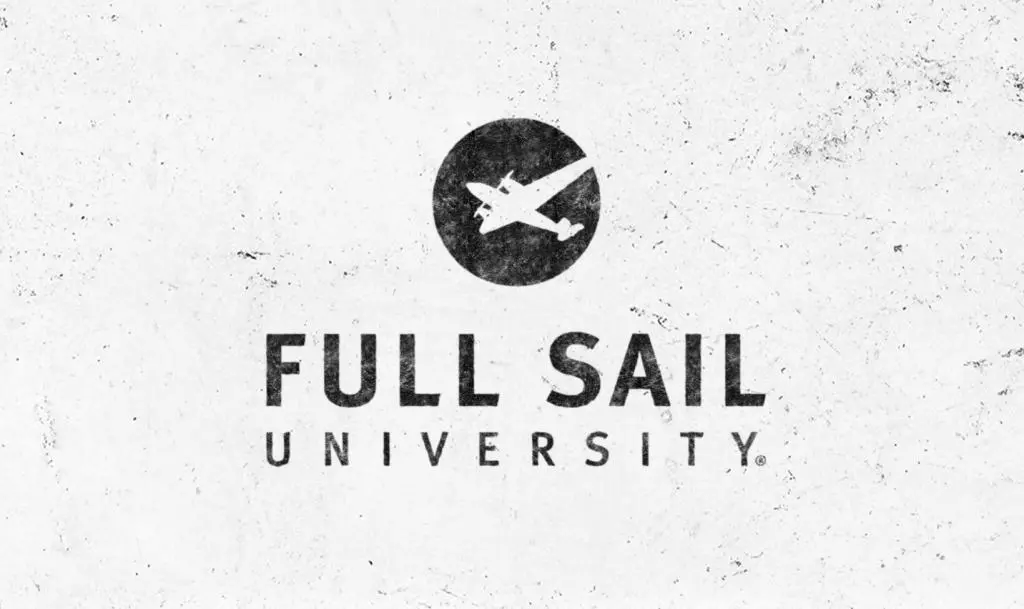
Full Sail University, located in Winter Park, Florida, is a renowned private for-profit university that offers cutting-edge degree programs in audio, design, computer animation, and business. With a rich history and a reputation for excellence, Full Sail University has become a leading destination for creative education and innovation in the fields of arts, entertainment, and media and it is known as being one of the best music production schools in the US.
Full Sail University was founded in 1979 by Jon Phelps in Dayton, Ohio, initially as a recording studio called Full Sail Productions, focusing on audio engineering courses. In 1980, it relocated to Orlando, Florida, and expanded its curriculum by adding new courses to its core recording arts program. In 1989, Full Sail moved to its current location in Winter Park, Florida, and was accredited to grant specialized associate degrees in the following year, marking a significant milestone in its growth and development.
Enrollment at Full Sail University doubled between 1989 and 1991, reflecting the increased interest in film and media studies. In response to changing industry demands, Full Sail began offering associate degrees in computer animation, digital media, game design and development, and show production and touring between 1995 and 1999, which were later expanded into full bachelor’s degree programs. In 2005, the university introduced its first bachelor’s degree program in entertainment business, and in 2007, it launched its first master’s degree program in the entertainment industry. Online degree programs were also introduced in 2007, including the online adaptation of the existing Entertainment Business Master of Science program.
The addition of master’s degree programs and other factors led to Full Sail University being recognized as a university by the state of Florida in 2008. It changed its name from Full Sail Real World Education to Full Sail University after attaining university status from the Florida Department of Education’s Commission for Independent Education. This recognition further solidified Full Sail University’s position as a leading institution of higher education in the creative arts and entertainment industries.
The campus of Full Sail University is situated in Winter Park, Florida, just 8.6 miles northeast of downtown Orlando, on roughly 200 acres. Soundstages, a film backlot, and 110 studios are among the campus’s modern facilities, which give students access to an immersive learning environment that replicates conditions seen in the real-world business world. Additionally, in order to accommodate the faculty for its online degree programs, Full Sail University has leased a business center in the heart of Orlando. The institution has also made investments in the development of new classrooms, film and television soundstages, and instructional buildings, displaying its commitment to giving its students access to the best facilities and resources.
Academic Programs at Full Sail University
Full Sail University offers a wide range of associate, bachelor’s, and master’s degree programs in various disciplines. Some of the popular programs include:
- Audio Production: This program focuses on the technical and creative aspects of audio engineering, music production, and sound design. Students learn to work with industry-standard equipment and software, and gain hands-on experience in recording studios and live sound environments.
- Computer Animation: This program teaches students the principles of 3D computer animation, including modeling, rigging, texturing, and lighting. Students also learn about character animation, storyboarding, and visual effects, and gain practical experience in creating animated projects.
- Game Design and Development: Game design, programming, art, theory, and production are covered in this program. Students learn to develop video games using industry-standard tools and technologies.
- Entertainment Business: This program focuses on the business and management aspects of the entertainment industry, including music, film, television, and live events. Students learn about marketing, promotions, contracts, intellectual property, and financial management, and gain practical skills to pursue careers in the entertainment business.
- Film Production: This program covers all aspects of film production, including pre-production, production, and post-production. Students learn about screenwriting, cinematography, directing, editing, and sound design, and gain practical experience in creating films using industry-standard equipment and techniques.
Learning Music Production at Full Sail University
Full Sail University offers several programs as music production school, including:
- Music Production Bachelor’s Degree: This program provides students with a comprehensive education in music production, covering topics such as recording techniques, music theory, audio engineering, music business, and more. Students gain hands-on experience in state-of-the-art recording studios and labs, and learn how to create, mix, and master music in various genres and formats.
- Recording Arts Bachelor’s Degree: This program focuses on the technical aspects of music production, including recording, editing, mixing, and mastering. Students learn how to use industry-standard recording equipment, software, and techniques, and gain practical experience through recording sessions, live sound events, and studio projects.
- Show Production Bachelor’s Degree: This program combines music production with live event production, teaching students how to create and manage audio for concerts, festivals, and other live performances. Students learn about sound design, system setup, live mixing, and other aspects of live sound production, as well as music production techniques.
- Music Business Bachelor’s Degree: This program focuses on the business side of the music industry, including music publishing, marketing, artist management, and entrepreneurship. Students learn about the various aspects of the music business and how to navigate the ever-changing landscape of the industry, while also gaining an understanding of music production and recording techniques.
- Music Production Master’s Degree: This program is designed for students who already have a background in music production and want to further their skills and knowledge. It covers advanced topics such as music composition, advanced mixing and mastering techniques, production for different mediums (film, TV, games), and music technology.
Abbey Road Institute – Multiple Location
- School Site: AbbeyRoadInstitute.Co.uk
- School Location: Multiple Location (London, UK / Sydney, Australia / Paris, France / Amsterdam, Netherlands / Frankfurt, Germany / Johanesburg, South Africa / Miami, USA)
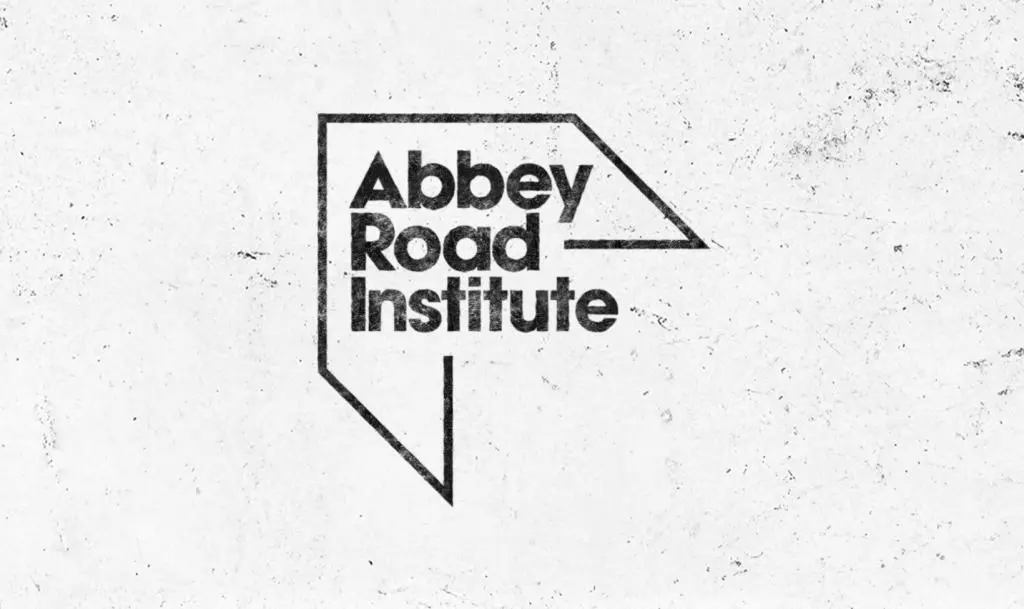
Founded in March 2015, Abbey Road Institute is dedicated to providing world-class education in music production and audio engineering, and it has quickly become a training ground for the next generation of music producers and sound engineers.
The school’s foundations are rooted in the expertise and innovation created at Abbey Road Studios, the world-famous recording studio that has been the birthplace of countless iconic albums and artists over the past 90 years.
Abbey Road Institute has campuses around the world, including in Amsterdam, Frankfurt, Johannesburg, Miami, Paris, Sydney, and London, where the school was first founded. All of the campuses offer the same course, which has been designed to provide students with a broad, hands-on, and cutting-edge education in music production and audio engineering.
At Abbey Road Institute, students learn from creative cutting-edge producers, technical experts, business professionals, and established and experienced names across the music industry. The school’s close collaboration with sound engineers and music producers ensures that the curriculum is always up-to-date and relevant to the industry’s evolving needs.
Learning Music Production at Abbey Road Institute
Abbey Road Institute offers several programs as a music production school, including:
Advanced Diploma in Music Production and Sound Engineering: This music production course is an intensive, one-year program designed by industry professionals to take your music production or sound engineering career to the next level. The program offers access to industry-standard equipment, studios, and expert instructors.
With a focus on technical skills, creative approaches, and an understanding of the music business, graduates of the program will have the ability to work collaboratively as part of a creative team, manage music production projects, and navigate the music industry. Upon completion of the program, students will be able to utilize industry-standard tools for music production, implement compositional and arrangement ideas, and manage their professional career development.
Advanced Diploma in Audio Post Production for Film and TV: This program is a 20 weeks course that has been designed to equip you with the necessary skills and confidence to pursue a career in motion picture sound. Developed in collaboration with award-winning audio engineers and post-production specialists, this course provides a practical, hands-on learning experience that prepares you for the collaborative nature of the audio industry.
The course requires prior knowledge of sound theory, recording and production techniques, Avid Pro Tools, and fundamental knowledge of audio post-principles, practice, and terminology. You will have access to state-of-the-art equipment, including the new Avid S6 powered Dolby Atmos mix suite at Angel Recording Studios, which features immersive ATC monitoring, a dedicated Dolby Atmos Rendering and Mastering Workstation, Pro Tools | HDX, and Pro Tools | MTRX hardware. In addition, you will benefit from masterclasses in Abbey Road Studios’ Dolby Atmos Mix Stage, delivered by Abbey Road engineers, and off-site location recording.
By the end of the 20-week course, you will have a thorough understanding of post-production workflows and practices, and you will be equipped with the skills necessary to work as an employee of a post-production facility or as a freelancer.
BIMM Institute – Various Locations, Europe
- School Site: BIMM.ac.uk
- School Locations: London, Berlin, Dublin, Manchester, Birmingham, Bristol, Brighton, Hamburg
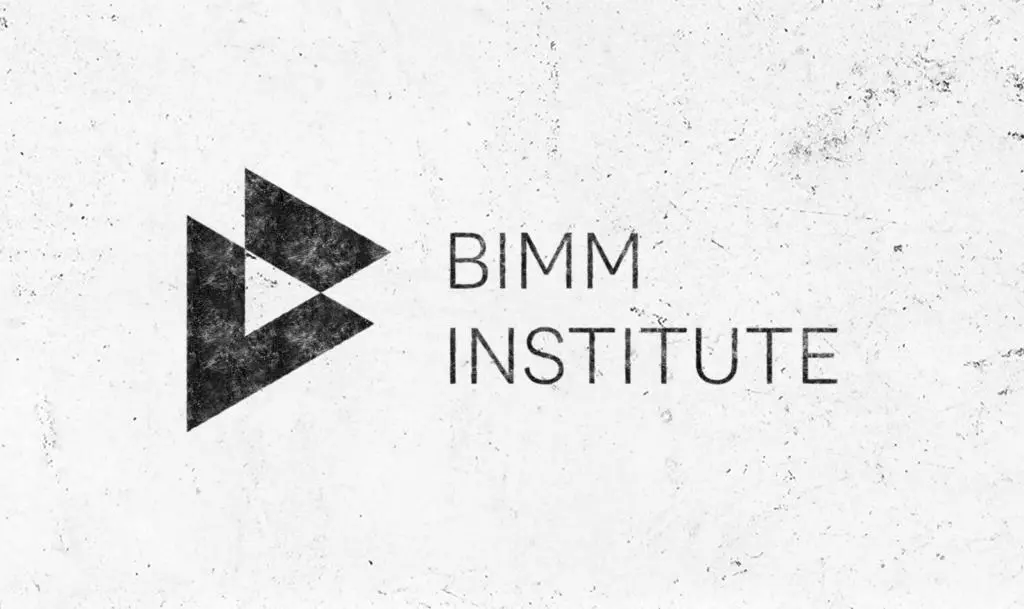
What is BIMM Institute?
BIMM Institute, once identified as The British and Irish Modern Music Institute, stands as a group of eight individual colleges. These colleges are spread across European cities such as Brighton, Bristol, London, Dublin, Manchester, Berlin, Birmingham, and Hamburg. As a hub for music and creative education, it currently accommodates over 7,000 students, offering Diploma, Degree, and Masters level courses.
The genesis of BIMM traces back to 2001 when it was established in Brighton as the Brighton Institute of Modern Music. The journey of expansion began with BIMM Bristol in 2008, followed by acquisitions and new campuses opening in Dublin, Manchester, Berlin, Birmingham, and Hamburg over the next decade.
Ownership changes include the purchase of the BIMM Group by Intermediate Capital Group in 2020. BIMM’s founding members were Damian Keyes, Kevin Nixon, Bruce Dickinson, and Sarah Clayman, and they later sold the group to Sovereign Capital in 2010.
Leadership has played a vital role in shaping BIMM’s identity, with notable appointments including Adam Carswell as managing director in 2012 and several executive principals and directors guiding various facets of the organization.
In terms of academic recognition, BIMM was granted Taught Degree Awarding Powers in the UK in March 2019, taking charge of its academic standards and degree qualifications. New degree courses were introduced in 2020, including Joint Honours options across their European colleges.
An alumni list from BIMM is an illustrious one, including names like James Bay, Izzy Bizu, George Ezra, and many more, affirming the institution’s standing as a launchpad for musical talents.
Learning Music Production at BIMM Institute
BIMM Institute offers a comprehensive selection of courses tailored to the various aspects of music production, ranging from undergraduate to postgraduate levels. These programs are specifically designed to cater to diverse interests and career goals in the music industry.
- BA (Hons) Music and Sound Production: For those with a passion for audio production, this course is offered in locations such as Birmingham, Brighton, Bristol, London, and Manchester. It focuses on meeting the needs of individuals aiming for careers in the audio production domain.
- BA (Hons) Electronic Music Production: Geared towards enthusiasts of electronic music production, this course is available in the same cities as the Music and Sound Production course. It is designed to serve students interested in all facets of the electronic music production field.
- BA (Hons) Music Production: Specifically available in Berlin, this program is directed at students who have a passion for music production and are seeking a career in the broader music industry.
- BA (Hons) Music Production & Music Business: For those aiming to blend the creative and technical sides of music production with entrepreneurial insights, this course is available in Birmingham, Brighton, Bristol, London, and Manchester.
- BA (Hons) Songwriting & Music Production: If you are a songwriter interested in delving into both the creative and technical dimensions of music production, this degree, available in multiple locations, is tailored to your needs.
- BA (Hons) Popular Music Performance & Music Production: Designed for performers keen on understanding the ins and outs of music production, this program is accessible in several cities across the UK.
- MA Popular Music Practice: Offered in Berlin, Birmingham, Brighton, Bristol, Dublin, London, and Manchester, this Masters degree is an ideal path for those looking to enhance their academic, creative, and professional skills after completing their undergraduate studies.
- Level 3 Diploma in Music Production: For aspiring music producers desiring hands-on training, this diploma is offered in London and serves as a stepping stone towards turning musical passion into a profession.
- Foundation Diploma in Music and Audio Production: Based in Dublin, this program supports producers who wish to reach their full potential but need a more flexible, part-time learning structure.
Note: As the offerings and requirements may vary between different campuses, it’s essential to visit BIMM Institute’s official website or contact the admissions office of the specific location you’re interested in for the most accurate information about their music production programs, including admission requirements, tuition fees, and curriculum details.
Point Blank Music School – Multiple Locations, Global
- School Site: PointBlankMusicSchool.com
- School Locations: London, Los Angeles, Mumbai, Ibiza, Online
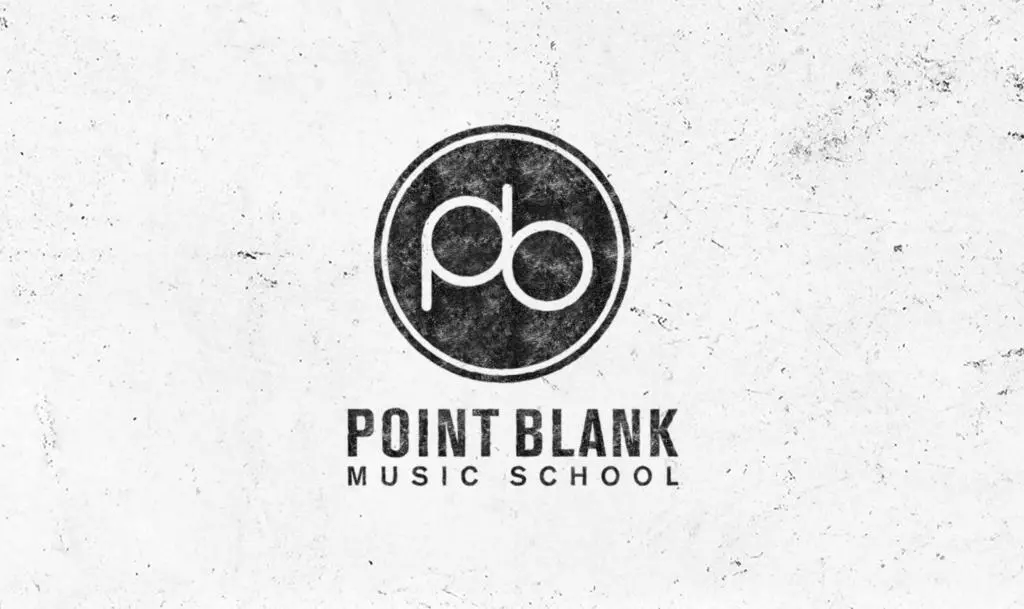
Point Blank Music School as one of the Best Music Production Schools Worldwide
Established in London in 1994 by musician and producer Robert Cowan, Point Blank Music School initially began as a recording studio in Greenwich. Following requests from clients to learn about the recording equipment, Point Blank Music School became a globally recognized music production school. With the headquarters located in Hoxton, North London, it has since spread to Los Angeles, Ibiza, Mumbai, Hangzhou, Shenzhen, and even offers music production and audio engineering courses online.
The school offers an extensive range of courses for music production and music engineering, focusing particularly on electronic music production, sound engineering, DJing, and live sound.
It opened a specialized school in Silverlake, Los Angeles in 2015, offering music composition, complete DJ, and audio mastering courses.
In 2016, Point Blank further expanded its London campus with a second studio complex in Hoxton, outfitted with seven purpose-built teaching studios, including top-tier DJ and music production equipment.
In addition to conventional campuses, Point Blank has also ventured into more exotic locations, opening a school in San Jose, Ibiza that provides a hybrid DJing and Music Producing course, and a two-week DJ/Entrepreneur course in Mumbai. In 2019, a new branch opened in Hangzhou, China, in collaboration with NetEase FEVER, focusing on various music courses including music production.
Point Blank has formed partnerships with esteemed institutions and organizations such as Middlesex University, offering a BA (Hons) Music Production and Sound Engineering degree, and tech giants like Ableton, Apple Inc., Steinberg, and Native Instruments. Their alliance with Solid State Logic (SSL) since 2016 is evidence of the commitment to quality and innovation.
Not only confined to education, but Point Blank also supports the music industry directly by running its in-house record label, Point Blank Recordings, aimed at nurturing and establishing student talent. This multi-faceted approach reflects Point Blank’s mission to equip students with comprehensive skills in music production and related fields.
Learning Music Production at Point Blank Music School: Courses, Degrees, and Diplomas
Point Blank Music School is renowned for offering a diverse spectrum of courses tailored to various aspects of music production. With a focus on real-world applications, these courses range from short-term awards to university degrees, meeting the needs of beginners to professionals.
Music Production Diplomas
- Music Production & Audio Engineering Diploma: A 1-year or 9-month course, meeting 3 days per week.
- Music Production & DJ Performance Diploma: Offered as a 1-year or 9-month program with 12 courses over 3 days per week.
- Music Production & Sound Design Diploma: Spanning 1 year or 9 months, with classes held 3 days per week.
- Music Production & Vocal Performance Diploma: A 1-year or 9-month curriculum, conducted 3 days per week.
- Professional Diplomas: Including international diplomas in various music production and performance domains, usually lasting 9 months or 6 months.
Music Production Certificates
Certificates cover more specialized areas of music production, usually lasting 6 months:
- Music Production & Sound Design Certificate: 6 courses, 3 days per week.
- Music Production & Vocal Performance Certificate: 6 courses, 3 days per week.
- Music Production & Audio Engineering Certificate: 6 courses, 3 days per week.
- Music Production & DJ Performance Certificate: 6 courses, 4 days per week.
- Music Production Certificate: 4 courses, 2 days per week.
Music Production Awards
Awards at Point Blank Music School are shorter-term qualifications, designed to provide focused training in specific areas. These awards often last for 3 to 6 months and are available in various subjects like mixing and mastering, sound design, music production and composition, and musical instruments such as piano, guitar, and bass.
The list of awards includes:
- Mixing & Mastering Award (3 Months, 2 courses, 2 days per week)
- Sound Design & Mixing Award (3 Months, 2 courses, 2 days per week)
- Music Production & Composition Award (3 Months, 2 courses, 2 days per week)
- Music Production & Audio Engineering Award (3 Months, 2 courses, 1 day per week)
- Piano Keyboard Award (6 Months, 2 courses, 1 day per week)
- Guitar Award (6 Months, 2 courses, 1 day per week)
- Bass Award (6 Months, 2 courses, 1 day per week)
Music Production Courses
Point Blank Music School offers a variety of standalone 3-month courses designed to cover specific areas in the field of music production. Each course is tailored to provide specialized training, and students can choose to study subjects like music composition, audio engineering, sound design, beatmaking, and composing for film & TV, as well as specific instrumental and creative skills.
The list of single courses includes:
- Music Production Course (3 Months, 1 course, 1 day per week)
- Music Composition Course (3 Months, 1 course, 1 day per week)
- Audio Engineering Course (3 Months, 1 course, 1 day per week)
- Sound Design Course (3 Months, 1 course, 1 day per week)
- Beatmaking Course (3 Months, 1 course, 1 day per week)
- Composing for Film & TV Course (3 Months, 1 course, 1 day per week)
- Creative Production & Remix Course (3 Months, 1 course, 1 day per week)
- Art of Mixing Course (3 Months, 1 course, 1 day per week)
- Audio Mastering Course (3 Months, 1 course, 1 day per week)
- Studio Vocal Production Course (3 Months, 1 course, 1 day per week)
- Essential Guitar Skills Course (3 Months, 1 course, 1 day per week)
- Essential Piano Keyboard Skills Course (3 Months, 1 course, 1 day per week)
- Essential Bass Skills Course (3 Months, 1 course, 1 day per week)
- Creative Piano Keyboard Skills Course (3 Months, 1 course, 1 day per week)
- Creative Guitar Skills Course (3 Months, 1 course, 1 day per week)
- Creative Bass Skills Course (3 Months, 1 course, 1 day per week)
These courses offer flexibility and are suitable for those looking to hone specific skills in music production, whether they are beginners or experienced musicians.
Music Production University Degree Courses
Point Blank Music School offers an extensive array of BA (Hons) and BSc (Hons) degrees in music production, including specialized fields such as sound engineering, DJ performance, vocal performance, songwriting, music industry management, and music systems engineering.
The degree programs include:
- BA (Hons) Music Production & Sound Engineering Degree (3 Years, 18 modules, 2 days per week or 2 Years, 18 modules, 3 days per week)
- BA (Hons) Music Production & DJ Performance Degree (3 Years or 2 Years, 18 modules)
- BA (Hons) Music Production & Vocal Performance Degree (3 Years or 2 Years, 18 modules)
- BA (Hons) Songwriting Degree (3 Years or 2 Years, 18 modules)
- BSc (Hons) Music Systems Engineering Degree (3 Years, 18 modules, 2 days per week)
- BA (Hons) Music Industry Management Degree (2 Years, 17 modules, 3 days per week)
Also offered are CertHE courses such as Music Production & Sound Engineering, DJ Performance, Vocal Performance, and Radio, Audio and Podcasting. These last 1 year and are composed of 6 modules, taught over 2 days per week.
For those needing preparatory studies, a Foundation Year is available, running for 9 months with 8 modules taught 3 days per week, providing a pathway into the degree programs.
Note: Offerings and requirements might differ across different campuses, so it is advisable to visit Point Blank Music School’s official website or contact the admissions office of the specific location you’re interested in for precise information regarding their music production programs, including admission requirements, tuition fees, and curriculum details.
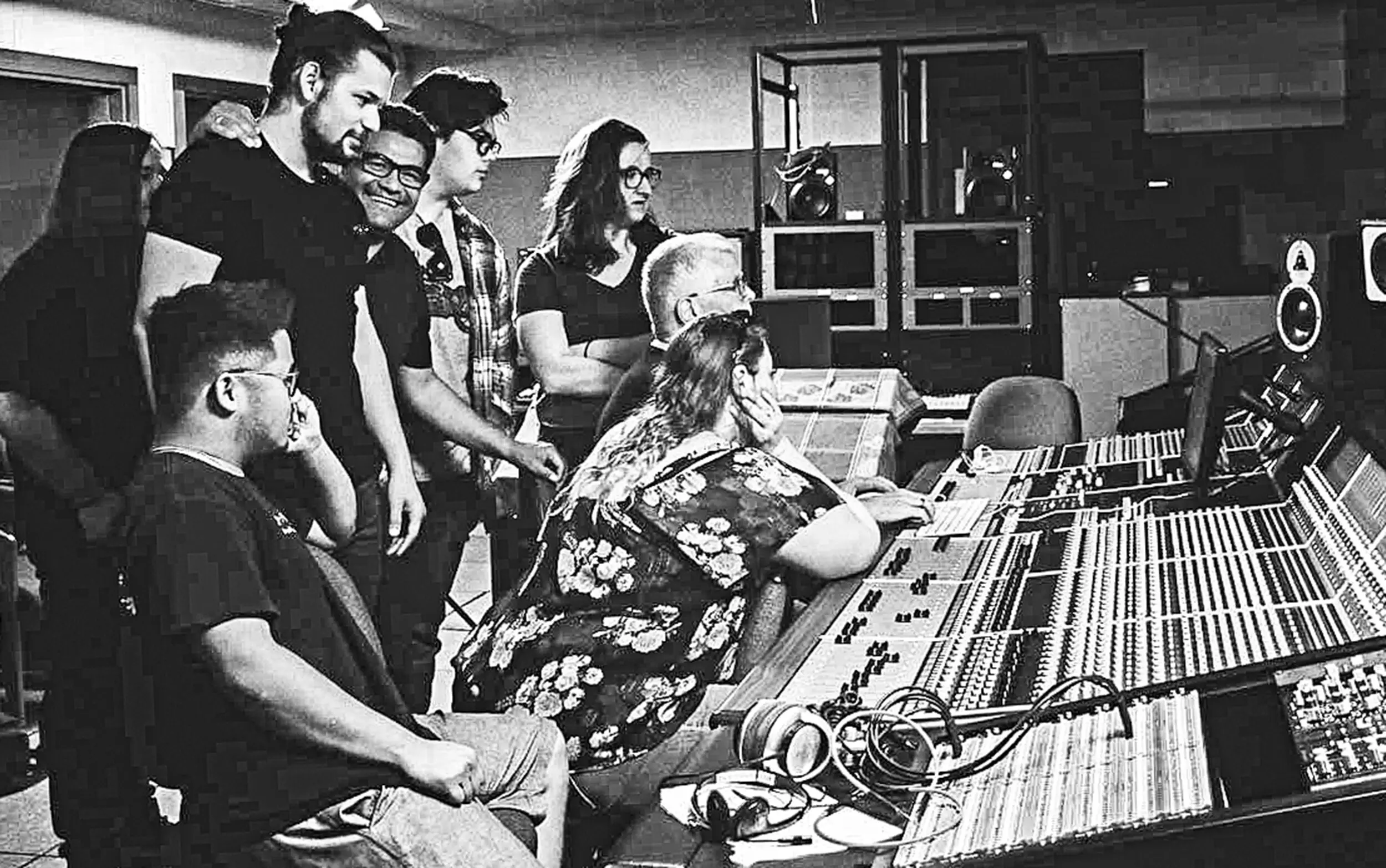
Final Thoughts: What Factors Should You Consider When Choosing a Music Production School?
Navigating the world of music production can feel like trying to find a melody in a cacophony. But don’t fret, because choosing the right music production school can turn this noise into harmonious music. So, what should you be tuning into when making this critical decision?
What Constitutes a Good Beat: Key Aspects of a Music Production School?
Every school plays its own tune, but some elements make certain institutions hit all the right notes. Here’s what to listen for:
- Curriculum: A comprehensive curriculum is the backbone of any good music production school. It should cover the basics like music theory and audio recording, and also delve into advanced topics like producing electronic music, mixing, mastering, sound design, and music software training.
- Faculty: Learning from experienced professionals can greatly enhance your understanding of the industry. A faculty composed of active industry professionals can provide real-world insights and practical knowledge.
- Facilities: Top-notch facilities, such as a well-equipped recording studio and access to industry-standard music production software, can significantly augment your learning experience.
- Alumni Success: A school’s reputation can often be gauged by the success of its graduates. If many alumni have carved out successful careers in the music industry, it could be a positive indication of the music production or audio engineering school’s quality.
- Accreditation: Accreditation ensures that the school meets certain educational standards. A music production degree from an accredited music production school can give your resume an edge.
How Important is the Location of your Music Production School?
The location of your school can play a key role in shaping your music production journey. Cities with a vibrant music scene can offer more opportunities for internships, networking, and real-world experience.
However, with the rise of online learning and global collaboration, location has become less critical than before. Whether you choose a music production school in a bustling city or opt for online education, what matters most is the quality of education and opportunities the school provides.
Understanding the Costs: What’s the Price Tag on a Music Production Degree?
Education is an investment, and it’s essential to understand the costs involved. Tuition for a music production degree can vary widely depending on the school, the program’s length, and whether it’s online or offline. Other expenses to consider include the cost of living (if you’re relocating), study materials, and any additional fees.
Don’t be disheartened by the costs, though. Many music production schools offer financial aid, scholarships, and flexible payment plans. Moreover, consider the value that the degree will add to your career. In the long run, a quality education from a renowned music production school could provide a significant return on your investment.
Remember, choosing the best music production school for you is like composing a song. You need the right elements to create a harmonious tune. With careful consideration and research, you can find a school that will help you orchestrate your dreams into reality.
How Can You Get the Most Out of Your Music Production School Experience?
Music production schools offer the perfect symphony of education and experience, giving you the stage to perform and fine-tune your skills.
But to fully hit the right chords of this opportunity, there are certain strategies you should be in harmony with. Here are some of the best ways to amplify your learning and experiences in music production school.
- Embrace the Learning Curve: Music production isn’t just about having the right tune; it’s about understanding the technology and techniques behind it. Enroll in sound design courses, study music theory, and spend time mastering music production software. The more diverse your learning, the more well-rounded your skills will be.
- Soak Up Real-World Experience: Music production is as much about doing as it is about learning. Use your school’s facilities to get hands-on experience, work on projects that challenge you, and explore different music genres. If your school offers online music production programs, take advantage of the flexibility to balance your coursework and real-world experience.
- Engage with Your Community: Networking is a vital aspect of the music industry. Connect with your peers, learn from your professors, and attend industry events whenever possible. Engaging with your community can lead to collaborations, job opportunities, and a deeper understanding of the music industry.
- Experiment and Innovate: Music production is a highly creative field, so don’t be afraid to push boundaries and try new things. Whether you’re creating a unique sound design, experimenting with a new music production technique, or producing electronic music, your originality could set you apart.
- Invest in Your Future: Consider your time at music production school as an investment in your career. This means not only learning but also preparing for the future. Take music business courses to understand the industry landscape, focus on developing a unique style, and start building your portfolio.
- Balance Theory and Practice: It’s essential to balance academic learning with practical application. While music production tutorials can teach you a lot, practicing what you’ve learned on a Digital Audio Workstation (DAW) helps to solidify those skills.
- Stay Open and Adaptable: The music industry is ever-evolving, and as a music producer, you must adapt. Keep an open mind, stay updated with the latest trends, and be willing to continuously learn and grow.
In conclusion, squeezing the most out of your music production school experience requires dedication, openness, and a clear focus on your future. It’s about tuning into opportunities, harmonizing with the community, and hitting the high notes of your potential.
And remember, every beat, every rhythm you create isn’t just a sound. It’s the echo of your journey in the world of music production.
Is Pursuing a Music Production Course Worth It?
The journey of music is as diverse as the melodies it contains. Some musicians learn to play by ear, while others study formally at renowned institutions. But what about those of us on the production side? Is the pursuit of a formal music production course worth the time, the effort, and not least, the financial investment?
When pondering such a question, it’s essential to understand that the world of music production is complex and multifaceted. It’s a blend of creativity and technical acumen, a symphony that requires an understanding of sound design courses, music theory, and digital audio production.
The intrinsic value of a music production course lies in the structure and systematic approach it offers. If you’re just starting, deciphering Ableton from Logic Pro might feel as challenging as a Bach fugue. Music production schools offer a comprehensive curriculum covering essential topics such as music production software, mixing and mastering classes, and producing electronic music. This comprehensive learning framework can streamline your journey and accelerate your growth.
Further, a bachelor’s or master’s in music production isn’t merely an academic achievement; it’s a testament to your dedication and passion for the craft. It’s proof that you’ve spent time mastering music production techniques, learning sound design, and understanding the intricacies of music production.
Music production schools also offer you an opportunity to learn from experienced professionals, build a network in the industry, and access state-of-the-art facilities. These are invaluable assets in an industry where who you know can be just as important as what you know.
That being said, it’s also crucial to consider alternative viewpoints. The digital age has democratized music production, allowing anyone with a computer and a passion for music to create beats in their home studio. Online tutorials, music production programs, and DAW training have made self-learning a feasible route. Some may argue that the hands-on, self-directed exploration of music production can be just as beneficial as a formal degree, especially considering the lower cost.
So, is a music production course worth it? The answer largely depends on your individual circumstances and learning style. It’s an investment of time, money, and energy, but it provides a structured learning environment, networking opportunities, and formal recognition of your skills.
Alternatively, if you’re an independent learner who prefers a more hands-on, learn-as-you-go approach, teaching yourself music production could be a viable option. Remember, there’s no one-size-fits-all path in music. It’s about finding the right rhythm for you. And whether that involves enrolling in one of the top music production schools or setting up your own home studio is a choice only you can make.
Ready to Kickstart Your Music Production Journey?
Are the melodies and rhythms of your mind yearning to find their voice? Do you find yourself deconstructing the songs you love, curious about how each layer contributes to the whole? If you answered yes, then you’re already on the path towards music production, my friend. The quest is complex, fulfilling, and downright exciting. So let’s dive into the nuances of embarking on this exciting voyage and the importance of choosing the right music production school for you.
Picture a music production school as your home studio. It’s your playground where you can explore, make mistakes, learn, and ultimately grow as an artist. It’s a hub of creativity where you’ll learn everything, from the music production basics to mastering advanced digital audio production techniques. But just like finding the perfect DAW (Digital Audio Workstation), the key is in choosing a school that aligns with your aspirations and learning style.
Investing time in choosing the right music production course for you is just as crucial as understanding your first music production software. Do you prefer hands-on learning or theoretical analysis? Do you want to focus on producing electronic music or are you more interested in sound design courses? Your answers will guide you to the ideal program. Some of you may resonate with a bachelor’s in music production, while others may prefer specialized Ableton or Logic Pro courses. Remember, this journey is deeply personal and unique to you.
While browsing top music production schools, you might be overwhelmed by the variety of music industry courses, beat making classes, and audio engineering schools out there. Don’t fret. Let your passion guide you, and consider each option in terms of how it can mold you into the music producer you aspire to be.
And so, to you, prospective students, sound engineers, music enthusiasts, and future producers, I say this – music is an exploration, an expression of self. It’s as diverse and individual as we are. As you stand on the brink of this incredible journey, remember that the best music production schools are not just those with the highest rankings, but those that will nurture your talent, ignite your creativity, and set your music ablaze.
The world of music is an orchestra waiting for your unique tune. So, go on, take that bold step into your music production journey. Whether your future holds a music production degree or an independent music production career, remember, your symphony awaits. And the baton is in your hands. Choose your school, select your course, and create your music. The stage is set. Are you ready to play?

